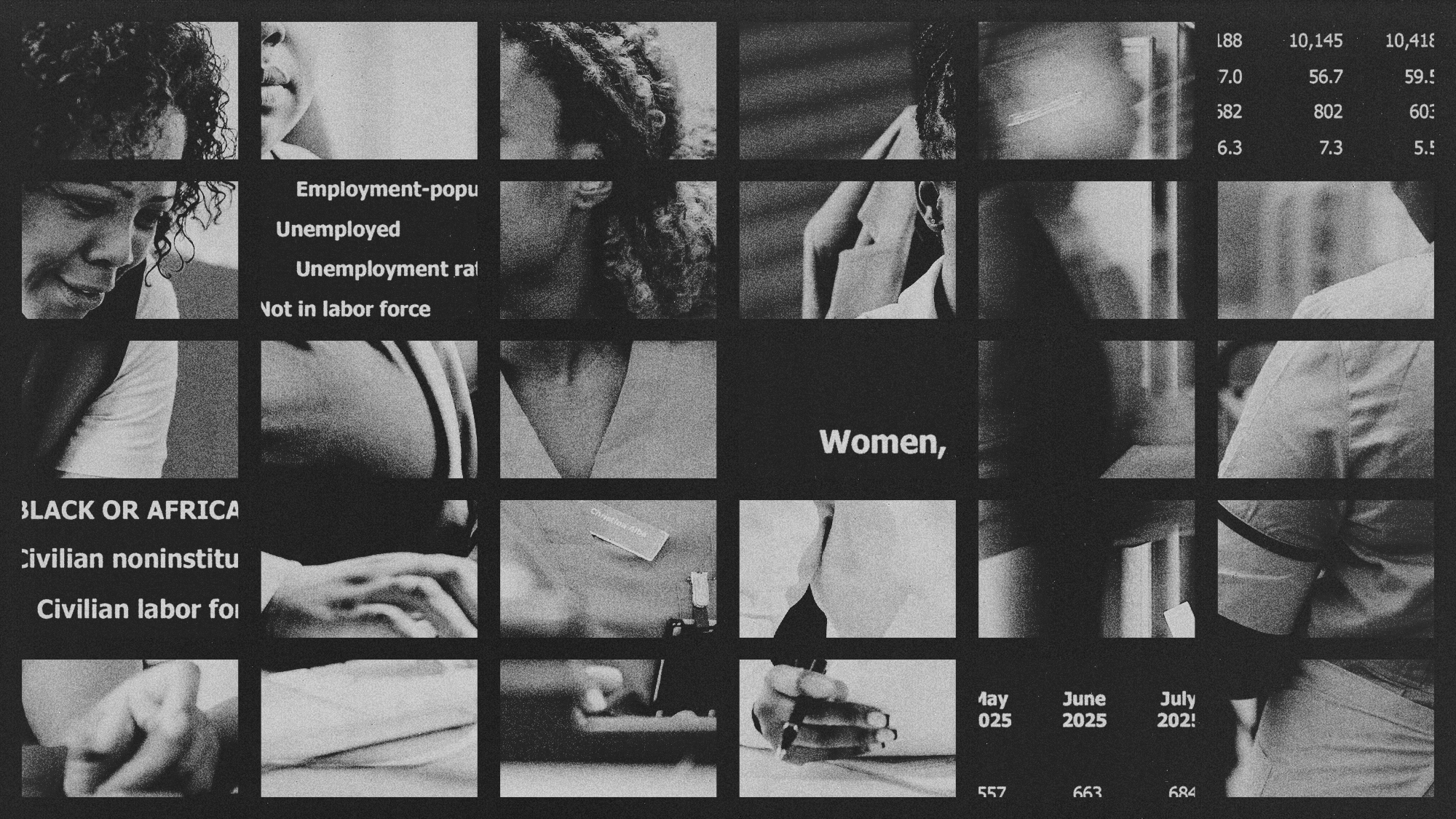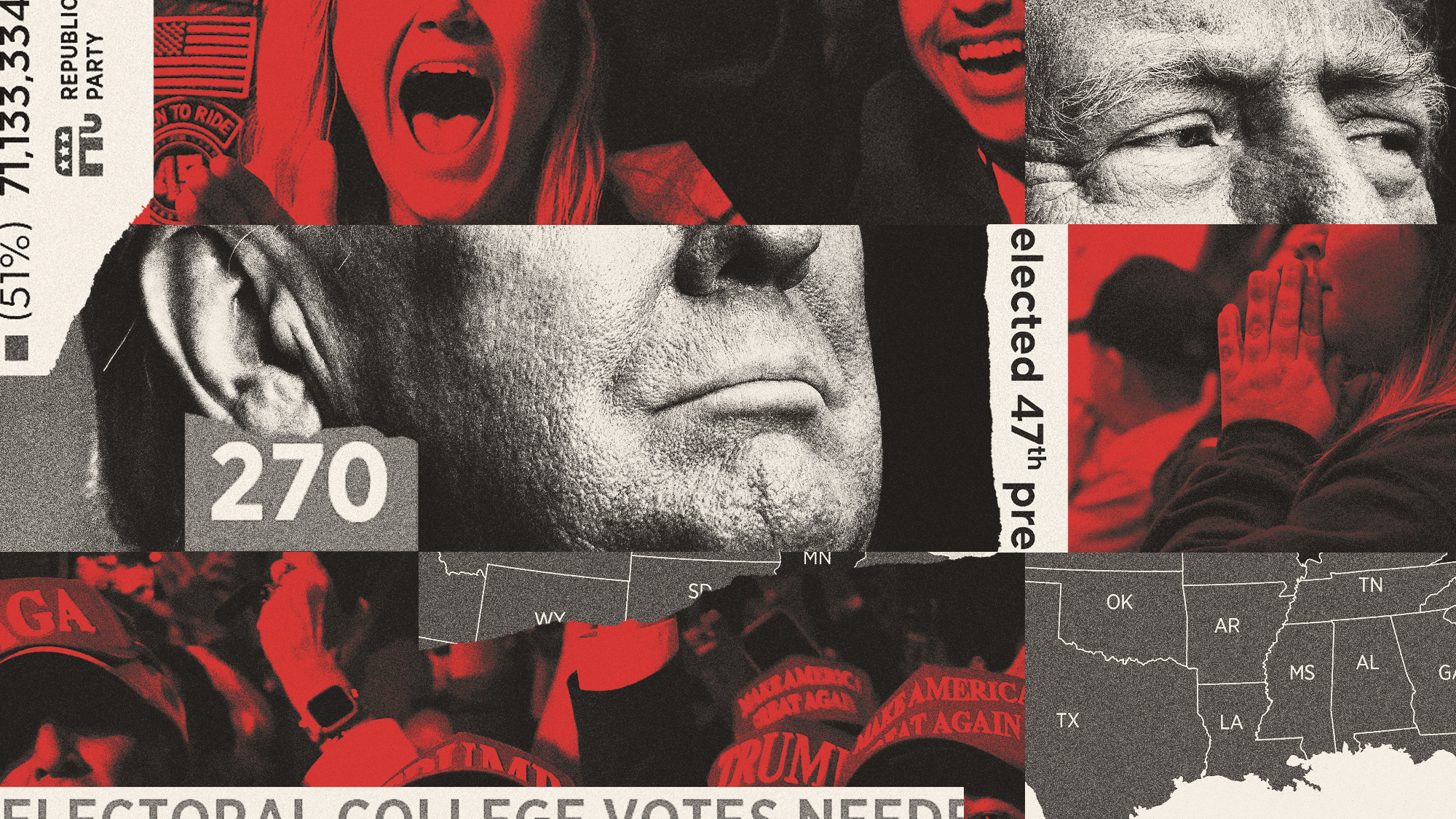Why are (some) Latinos drawn to white supremacy?
A mass shooting in Texas raises complicated questions about race and ethnicity


A free daily email with the biggest news stories of the day – and the best features from TheWeek.com
You are now subscribed
Your newsletter sign-up was successful
The mass shooter who allegedly killed eight people at a Texas mall this month was a Hispanic man with "purported neo-Nazi views," Axios reports, part of the trend of "a growing number of Hispanics pushing the doctrine of white supremacy."
Some conservative observers have expressed skepticism that a Latino person could also embrace a racist doctrine. "How can you be a non-white and be a white supremacist?" right-wing commentator Mark Levin said on his radio show following the Texas shooting. "It's just — it's just — you have to be insane to make these arguments." Elon Musk weighed in on Twitter as well: "It might all be true, but such an incongruent set of claims deserves extreme scrutiny."
But such incongruences are nothing new. The Boston Globe's Marcela García points to the case of Enrique Tarrio, "a dark-skinned Cuban American" who formerly led the far-right Proud Boys group — and who was just convicted of seditious conspiracy in the Jan. 6 Capitol riot. The Dallas Observer similarly highlights Nick Fuentes, the Holocaust denier most famous for his dinner with Donald Trump, and concludes: "Self-loathing is a key issue in cases like these, as is the country's history of white supremacy." Why would Hispanics be drawn to white supremacy? And why would the white supremacist movement embrace them?
The Week
Escape your echo chamber. Get the facts behind the news, plus analysis from multiple perspectives.

Sign up for The Week's Free Newsletters
From our morning news briefing to a weekly Good News Newsletter, get the best of The Week delivered directly to your inbox.
From our morning news briefing to a weekly Good News Newsletter, get the best of The Week delivered directly to your inbox.
What are the commentators saying?
"Anyone who has a passing familiarity with racial categories knows that in the United States, Hispanic or Latino is an ethnicity and not a race," Joan Walsh writes at The Nation. Many Hispanics also identify as white, and many don't. And America has a long history of enmity towards various ethnic groups — Italians, Irish, and Greeks among them — that eventually subsided as those groups came to be considered "white." So anyone who denies that a Latino man could also be a white supremacist is probably ignorant "about the way race works, and destroys, in our country."
"Even outside the furthest right reaches of American politics, you can find all sorts of members of different races, white or not, being racist to all sorts of other races," adds Mother Jones' Ali Breland. White supremacists often encourage that racism — which is how Fuentes can slur minorities while welcoming some of them into his coalition. Doing so can also throw up a smoke screen to help such leaders deflect accusations of violent racism. "At the expense of tolerating a few individual people of color, far-right groups gain chips that they can use to launder their reputations."
Indeed, "Latino participation in extremist political projects has a long history in the United States, going back to the John Birch Society," Duke University's Cecilia Márquez writes at the New York Times. While the rise of Latino political power in the United States has often been depicted as a story about the "consolidation of young Latino voters on the left," social media platforms have also amplified "long-held racism in the Latino community," and led some to the far right. If we think that white supremacy can only be perpetrated by white people, "then we are hobbled in our ability to understand and limit the spread of these deadly ideologies."
What's next?
More of the same, most likely. Some racist groups "are changing to appeal to more people," Axios reports. In 2017, for example, the neo-Nazi website The Daily Stormer started publishing a Spanish-language version. And far-right militias are increasingly recruiting Latino members. "There are people within nearly every community who can respond to misogynistic, aggressive, conspiratorial rhetoric, and then become radicalized fairly quickly," says Brian Levin, director of the Center for the Study of Hate and Extremism at Cal State University, San Bernardino "This phenomenon is a lot more common than many people think," adds Arturo Domínguez at Latino Rebels.
A free daily email with the biggest news stories of the day – and the best features from TheWeek.com
The debate over the Texas shooter arrives just as America is becoming increasingly racially diverse. Sometime in the next few decades, white Americans will no longer be a majority of the country's residents, notes CNN's John Blake. Instead of diffusing racism, though, that trend might only exacerbate the country's worst tendencies — and white racists will continue to attract seemingly inexplicable adherents. "Don't ever underestimate white supremacy's ability to adapt," Blake writes. "Racism will likely be just as entrenched in a browner America as it is now. It will still be white supremacy, with a tan."
Joel Mathis is a writer with 30 years of newspaper and online journalism experience. His work also regularly appears in National Geographic and The Kansas City Star. His awards include best online commentary at the Online News Association and (twice) at the City and Regional Magazine Association.
-
 Hong Kong jails democracy advocate Jimmy Lai
Hong Kong jails democracy advocate Jimmy LaiSpeed Read The former media tycoon was sentenced to 20 years in prison
-
 Japan’s Takaichi cements power with snap election win
Japan’s Takaichi cements power with snap election winSpeed Read President Donald Trump congratulated the conservative prime minister
-
 Seahawks trounce Patriots in Super Bowl LX
Seahawks trounce Patriots in Super Bowl LXSpeed Read The Seattle Seahawks won their second Super Bowl against the New England Patriots
-
 ‘The West needs people’
‘The West needs people’Instant Opinion Opinion, comment and editorials of the day
-
 ‘Latinos bring a wealth of knowledge and cultural connection to the ocean’
‘Latinos bring a wealth of knowledge and cultural connection to the ocean’Instant Opinion Opinion, comment and editorials of the day
-
 Should TV adverts reflect the nation?
Should TV adverts reflect the nation?Talking Point Reform MP Sarah Pochin’s controversial comments on black and Asian actors in adverts expose a real divide on race and representation
-
 'It's our financialized economy in miniature'
'It's our financialized economy in miniature'Instant Opinion Opinion, comment and editorials of the day
-
 Black women are being pushed out of the workforce en masse
Black women are being pushed out of the workforce en masseIN THE SPOTLIGHT Employment data shows hundreds of thousands of Black women have left the labor market over the past few months. What's behind this mass exodus?
-
 'Last year was truly a revolutionary one for Indian cinema'
'Last year was truly a revolutionary one for Indian cinema'Instant Opinion Opinion, comment and editorials of the day
-
 'The world is watching this deal closely'
'The world is watching this deal closely'Instant Opinion Opinion, comment and editorials of the day
-
 How did Trump shift voters to the right and win?
How did Trump shift voters to the right and win?Today's Big Question Latino voters led a national shift to the right
